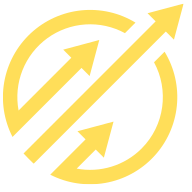What Personal Habits Contribute to Effective Leadership?
We've gathered insights from eight CEOs and top executives to uncover the personal habits that amplify their effectiveness in leadership roles. From starting with a clear daily agenda to focusing on the most important tasks, these leaders reveal the routines and practices that help them succeed at the helm of their organizations.
- Start with a Clear Daily Agenda
- Lift Weights for Resilience
- Maintain a Rigorous Morning Routine
- Journal for Clarity and Focus
- Engage in Weekly Strategic Reflection
- Systematize Daily Life for Engagement
- Connect Regularly with Customers
- Focus on the Most Important Tasks
Start with a Clear Daily Agenda
As a high-level executive, maintaining sanity amidst chaos is like trying to find Waldo in a crowded stadium—challenging but rewarding when you nail it! One habit that's been my secret sauce is starting each day with a clear agenda, akin to planning a heist but with less drama. By prioritizing tasks and avoiding the lure of email ping-pong, I stay focused like a laser beam on what truly moves the needle. And let's not forget the power of a good laugh—whether it's cracking a joke in a meeting or enjoying a meme break, humor keeps the spirits high and the creative juices flowing. Balancing structure with spontaneity isn't just a habit; it's a recipe for staying sharp and staying sane in the fast-paced world of business.

Lift Weights for Resilience
Leading a company requires lots of energy and mental stamina to deal with the chaos and workload over a prolonged period. Lifting heavy weights is a great mood-lifter and can be the difference between finding resilience and succumbing to despondency when times get tough.
Maintain a Rigorous Morning Routine
One personal habit that significantly contributes to my effectiveness as a high-level executive is maintaining a rigorous morning routine. This routine sets the tone for the day and includes several key components:
Early Rising: I start my day early, which gives me quiet time to plan and set priorities before the day gets busy.
Exercise: Physical activity, whether it's a run, a gym session, or a brisk walk, helps me stay energized and focused throughout the day.
Reflection and Planning: I spend time reviewing my goals and the day's agenda, reflecting on progress and challenges. This helps me stay aligned with long-term objectives and make informed decisions.
Reading: I dedicate time each morning to read industry news, business journals, or thought leadership articles. This keeps me informed about market trends and innovative ideas.
By consistently following this routine, I ensure that I start each day with a clear mind, a strategic focus, and a proactive approach to leadership.
Journal for Clarity and Focus
Journaling sounds a little florid, and I have to admit I wasn't thrilled when my wife gifted me a leather-bound notebook and told me to try writing down my thoughts and emotions in the evening. What a waste of time! But she'd seen great improvements in her own productivity after picking up the habit, and as usual, her advice to me was sound. Getting those worries and concerns off my mind before bed was incredibly helpful for my anxiety, and jotting down big ideas and epiphanies as they came allowed me to preserve them for a more effective moment.
I'm a better CEO for it. When I enter the office now, I'm more prepared to deal with the things that actually matter, knowing I have a document at home holding down the rattling thoughts and feelings that normally take up a good deal of mental and emotional bandwidth.

Engage in Weekly Strategic Reflection
I incorporate 'strategic reflection' at the end of each week. This involves reviewing the week’s activities, assessing what went well, and identifying areas for improvement. I jot down key takeaways and plan actionable steps for the upcoming week. This habit allows me to continuously refine our strategies and processes. It also provides a sense of closure and clarity, ensuring that we’re always moving forward with purpose. By reflecting on our achievements and challenges, I can steer the company more effectively toward our long-term goals.
Systematize Daily Life for Engagement
Systematize your life. The same way you automate and systematize processes to scale an organization, the more you want to do in your life each day, the better the default workflows of your life need to be: eating, exercising, sleeping, winding down. By having the right routines and systems in place for these foundational pillars in my life, I'm able to be more engaged while I'm working and connecting with others. I've taken the bandwidth and labor behind the hard, important decisions that affect the core of my well-being away.

Connect Regularly with Customers
I always make sure to connect with our customers and front-line employees on a regular basis. Whether I'm visiting our offices in person or having virtual meetings, these interactions help me stay connected to the real impact of our business and what our customers expect. Communicating directly like this allows me to lead the company from a place of connection and responsiveness, not from a detached perspective. It's about staying in tune with what motivates our business—the people we serve and collaborate with.

Focus on the Most Important Tasks
I ask myself on a regular basis, 'Am I working on the most important thing?' This is the single thing that keeps me from wasting time on items that aren't truly moving the business forward. It helps me avoid busy work.




